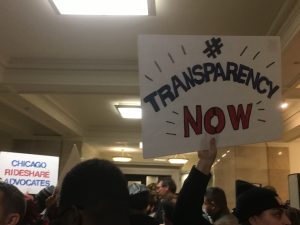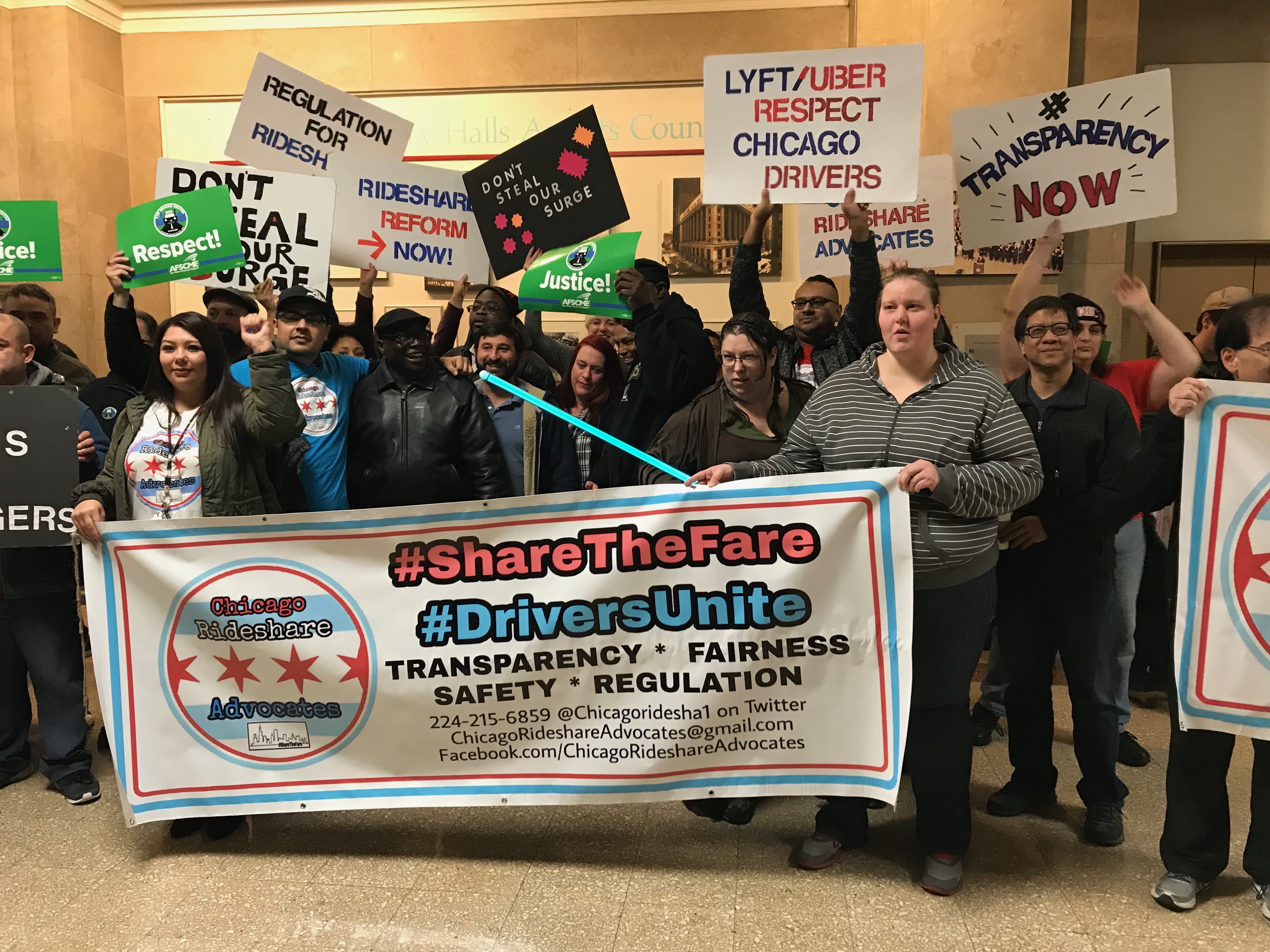The second floor of City Hall shook Wednesday with the roar of rideshare drivers demanding transparency from Uber and Lyft’s corporate leaders on driver earnings.
The Chicago Rideshare Advocates, a grassroots organization founded in August 2018 rallied with a clear list of demands for their employers and for city government leaders.
Eli Martin, one of the organization’s co-founders, said the group is looking for Uber and Lyft to limit the number of of new drivers and cars added to their platforms to greater increase profit margins.
“When you have an uncapped number of drivers, it drives down wages,” Martin said.
Chicago currently has more than 67,000 rideshare drivers at work in the city, the Chicago Tribune reports. A representative from the city’s department of Business Affairs and Consumer Protection was not able to confirm that data by publishing date.
Ahmed Elkordy, a Chicago Rideshare Advocates member, said he started out making great money driving for both Uber and Lyft, but that high wages didn’t last long. “I have watched my income decline over the years,” he said.
A study from JPMorgan Chase Institute confirms that drivers are earning less than they were five years ago.
“The rates have increased on the passengers’ side, but not on the drivers’ side,” Elkordy said.
In response to the JPMorgan Chase Institute study, Uber Senior Economist Libby Mishkin emphasized the difference between monthly and hourly earnings.
“If the share of our partners who drive only occasionally has increased over time, as it has, it stands to reason that the average of every driver’s monthly (or, for that matter, weekly or yearly) earnings would decrease,” she wrote in a Medium article in September 2018.

Mattia Nanfria, another Chicago Rideshare Advocates co-founder, said the increase in prices for riders deter them from tipping, which further decreases driver earnings.
“It’s not only about us, it’s about the consumer that’s being overcharged,” Nanfria said.
The Rideshare and Taxi Drivers United for Reform ― a coalition of Chicago drivers-for-hire ― is calling for the city to require the disclosure of pricing and income data by companies like Uber and Lyft, which would increase transparency for all involved.
These demands follow a series of reforms enacted in New York City. In August 2018, the New York City Council passed legislation that capped the number of rideshare drivers in the city and set a minimum wage for those drivers.
Uber and Lyft were contacted for their response to the protest, but did not respond by publishing date.
Despite the current situation, some drivers are optimistic about the future. Uber driver Nicole Taibossigai expressed hope about the organization’s demands becoming a reality.
”We were here three years ago and we fought for our rights, and we’re here again, so hopefully we’re one step further in the right direction,” Taibossigai said.







Be First to Comment